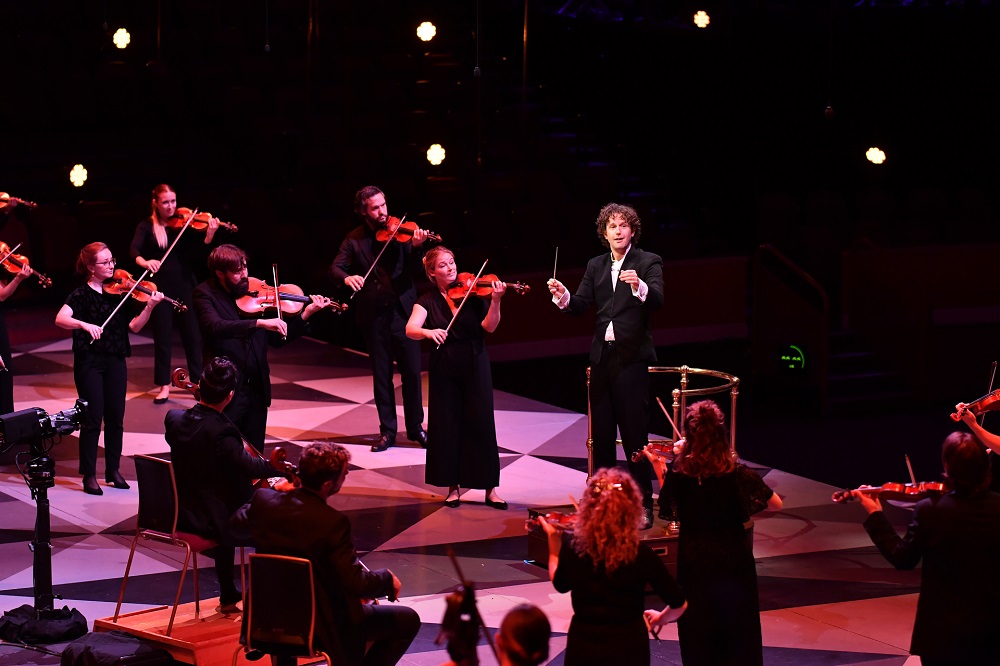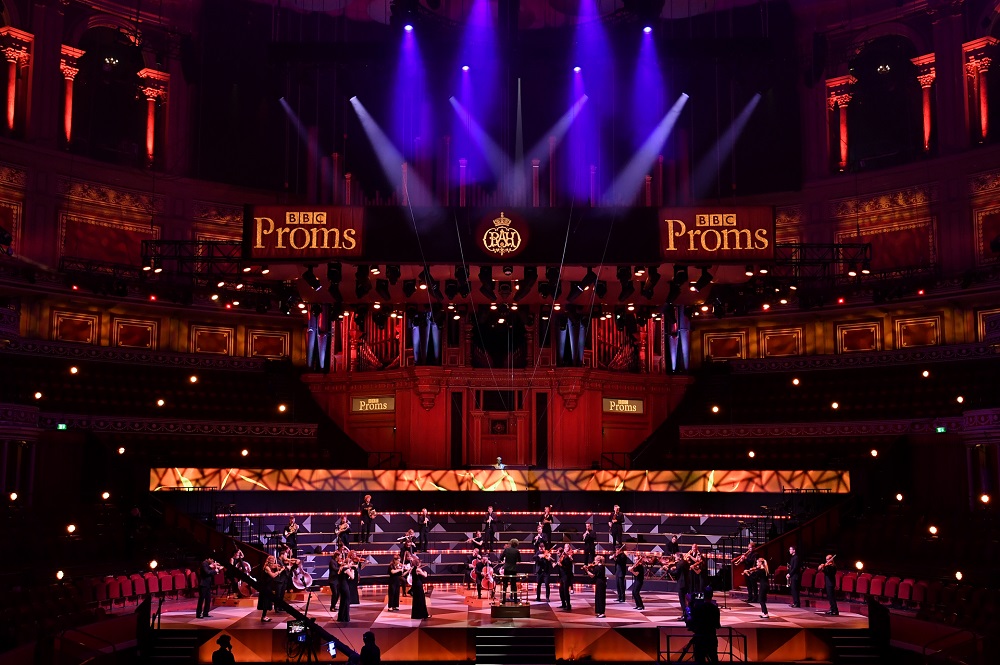The Aurora Orchestra’s trademark expertise in playing symphonies from memory arguably reached new heights this week as they tackled Beethoven’s Seventh, first in performances with a live audience and then, yesterday, in an empty Royal Albert Hall for what’s left of the Proms.
The programme opened with a new co-commission from the British composer Richard Ayres, who, like Beethoven himself, has had a struggle with deafness. Entitled No. 52 (Three pieces about Ludwig van Beethoven: dreaming, hearing loss and saying goodbye), this was an unnerving and at times moving world premiere. Fragments of melody and figuration drift through its textures, disrupted by electronic shudders, with buzzes and whines that would be familiar to anyone who has experienced tinnitus, but now rise up and overwhelm, sometimes spilling over into screams - yet the music continues, calm under it all, and not above making a joke about Für Elise. Music can inspire compassion and empathy as it burrows us into the mind of another human being, and this assuredly did - even if the compassion was more for Ayres than for the indomitable Beethoven. 
The Aurora Orchestra is better placed than most to adapt speedily to socially distanced concerts without audience: maybe it’s just another challenge to add to those innovative presentations that they love to invent and habitually surmount with aplomb. Collon took rapid, fleet-footed tempi - without which some parts of this “apotheosis of the dance” could risk sounding, as Thomas Beecham put it, “like a lot of yaks jumping about”. Grass would have had scant chance of growing under the feet of these musicians, who each had room to breathe, move and play out. It was in many ways an absolute tour-de-force, displaying sky-high musicianship, memory and nerves of steel. Occasionally, too, they remembered they were on camera and managed a smile while playing at full tilt. The performance simply flew, and we, from our socially-distanced sofas, could fly with it. My personal choice, nevertheless, would be to let these free-spirited strings use expressive vibrato a bit more often - it would sound even better. 
The pandemic has turned the effect of the Proms neatly on its head. Usually one puts up with a dodgy acoustic and either a packed arena or shoulder-twisting seats in order to soak up the unique atmosphere, which relies on the proximity of performers and promenaders responding to one another. Now we can hear everything clearly while stretching out with a nice cup of tea - but is it the same? Don’t give me that “new normal” notion: like everyone else, I’m praying that this is just a stop-gap.













Add comment